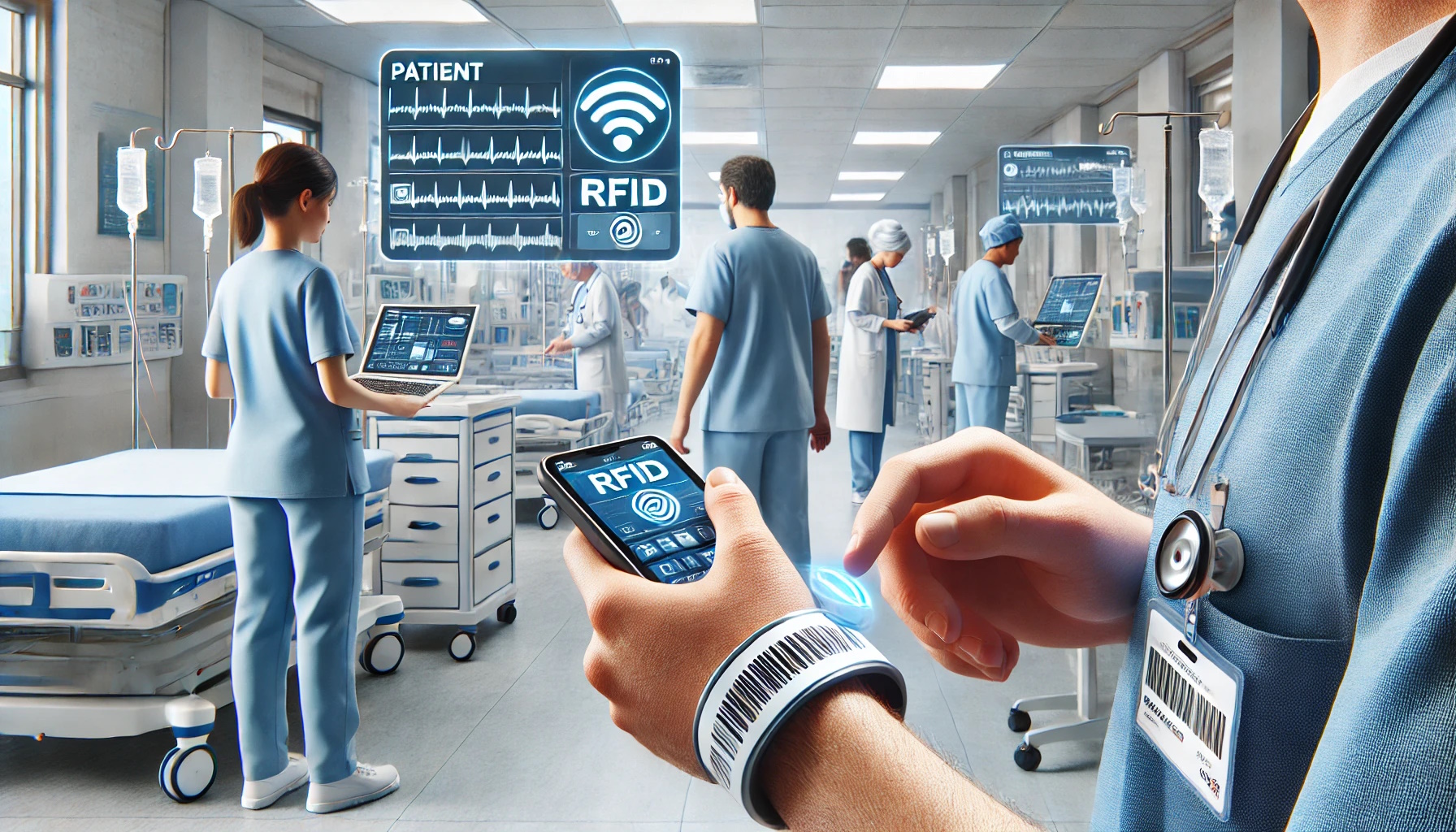Healthcare
RFID technology is transforming healthcare by improving patient safety, streamlining operations, and optimizing resources. Patients wear RFID wristbands for accurate identification and reduced risk of errors. Medications and equipment are tagged to ensure correct usage and availability, preventing expired drugs and reducing theft.
RFID enhances efficiency by tracking critical assets, surgical instruments, and staff movements. It optimizes supply chains, automates replenishment, and ensures that temperature-sensitive medications are stored correctly. Hospitals can also better manage patient flow, reduce waiting times, and improve the overall experience.
By providing real-time visibility, RFID increases safety, reduces waste, and allows hospitals to focus on delivering high-quality care.
An implementation of such a project may include the following steps:
1. Planning and Design |
4. Installation and Commissioning |
7. Ongoing Support and Maintenance |
2. Hardware Requirements |
5. Training |
|
3. Software and Integration |
6. Testing and Go-Live |
|
To ensure an effective and sustainable implementation of such a solution, multiple people and areas of expertise may be involved in the process. We have the necessary knowledge and a broad network of relevant companies and experts to execute the project in the best possible way. Through collaboration and expertise, we ensure that every part of the process is handled professionally and with the right resources. |
||

